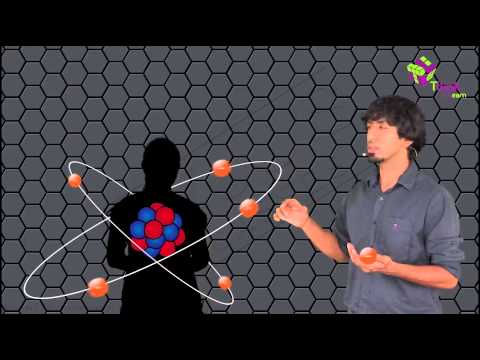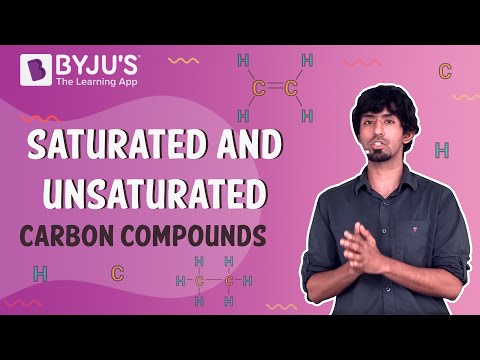What are Alkenes?
The common family of hydrocarbons found in crude oil is alkenes. In this family there is at least one carbon–carbon double bond. This double bond makes a big difference to the chemistry of the compounds of the family.
Table of Contents
- Related Topics
- Recommended Videos
- General Properties of Alkenes
- Classification of Alkenes
- Uses of Alkenes
- Frequently Asked Questions – FAQs
Alkenes and particularly ethene are tremendously important in the chemical industry. They are not found in crude oil in very large quantities but are produced by the cracking of the alkanes. The alkenes like all hydrocarbons, burn in air to form carbon dioxide and water. In oxygen ethene reacts explosively so it is not much good as a fuel. The alkenes are also too useful in the chemical industry for the manufacture of plastics and many other chemicals to be used as fuels.
Related Topics
- Preparation of Alkenes
- IUPAC Nomenclature of Alkenes
- Physical Properties of Alkenes
- Chemical Properties of Alkenes
- Electrophilic Addition Reactions Of Alkenes
- Hydroboration Oxidation Reaction
- Ozonolysis of Alkenes
Recommended Video on Alkenes


General Properties of Alkenes
- Physical state – The members containing two or four carbon atoms are gases, five to seventeen, liquids, eighteen onwards, solids at room temperature and they burn in air with a luminous smoky flame.
- Density – Alkenes are lighter than water.
- Solubility – Alkenes are insoluble in water and soluble in organic solvents such as benzene etc.
- Boiling point – The boiling points of alkenes show a gradual increase with an increase in the molecular mass or chain length, this indicates that the intermolecular attractions become stronger with the increase in the size of the molecule.
Classification of Alkenes
Alkyl groups bonded to the sp2 hybridised carbon atoms of alkenes affect the stability of the double bond. The chemical reactivity of alkenes also is often affected by the number of alkyl groups bonded to the sp2 hybridised carbon atoms. Thus, it is useful to classify alkenes by the number of alkyl groups attached to the C=C structural unit. This feature is called the degree of substitution.
An alkene that has a single alkyl group attached to the sp2 hybridised carbon atom of the double bond is monosubstituted. An alkene whose double bond is at the end of the chain of carbon atoms is also sometimes called a terminal alkene. Alkenes that have two, three and four alkyl groups bonded to the carbon atoms of the double bond are disubstituted, trisubstituted and tetrasubstituted respectively.
| monosubstituted | RCH=CH2 |
| disubstituted | RCH=CHR or R2C=CH |
| trisubstituted | R2C=CHR |
| tetrasubstituted | R2C=CR2 |
Uses of Alkenes
The list of uses of various alkenes like ethene, propene etc., is given below.
- Manufacture of plastics like polythene for making buckets, bowls, bags etc.
- Manufacture of polystyrene used in making car battery cases and parts of the refrigerator.
- Making ethane-1,2-diol used as anti-freezing for motor car radiators.
- Manufacture of ethanol and synthetic fibre terylene.
- Making an anti-knock for car engines.
- Manufacture of plastic, polypropene for making ropes and packaging material.
- Manufacture of propanol used in making acetone.
- Manufacture of acrylic fibres.
Oxidation of Alkenes – Video Lesson

Frequently Asked Questions on Alkenes
What are alkenes used for?
In manufacturing, alkenes find many different applications. They are used in the synthesis of alcohols, plastics, lacquers, detergents, and fuels as starting materials. For the chemical industry, the most important alkenes are ethene, propene, and 1,3-butadiene.
Where is alkene found?
Alkenes are the raw materials for plastics such as polyethene, PVC, polypropylene, and polystyrene, among others. The chemistry of alkenes is present in unsaturated fats, beta-carotene, and light through vision
What are the characteristics of alkenes?
Some of alkenes and alkanes’ physical properties are similar: they are colourless, nonpolar, and combustible. Alkenes exist in all three phases at room temperature: solids, liquids, and gases. Alkenes have similar melting and boiling points to alkanes; however, isomers of cis alkenes have lower melting points than trans isomers.
Do alkenes have higher boiling points?
The further an additional intermolecular mass, the higher the boiling point. With the rise in the size of the molecules, intermolecular forces of alkenes get stronger. For each case, the alkene has a boiling point which is lower than the corresponding alkane by a small number of degrees.
Can alkenes be used as fuel?
Unlike alkanes, alkenes burn readily to give carbon dioxide and water if, for example, the combustion is complete. Despite two reasons, however, they are NOT used as fuels. To make plastics, anti-freeze and numerous other useful compounds, they are far too valuable for use.
How do you test for an alkene?
Use of bromine water as an alkene test. The solution becomes colourless if you shake an alkene with bromine water (or bubble a gaseous alkene through bromine water). Alkenes decolourise bromine water.
How do alkenes react?
Alkenes are relatively stable compounds, but are more reactive than alkanes, due to the carbon-carbon π-bond reactivity. Most alkene reactions involve adding to this ÿ bond, forming new single bonds. In alkenes such as ethene, the carbon-carbon double bond reacts with concentrated sulphuric acid
Why are alkanes called paraffins?
Paraffins is a Latin word. Alkanes are called paraffins because they have a very low affinity with a general reagent. Or put it another way, alkanes are toxic compounds. It is under drastic conditions that they undergo reactions.

Comments